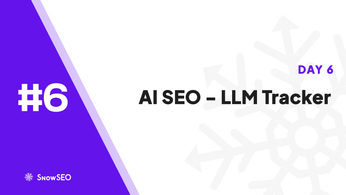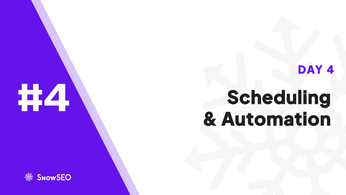
SEO Tools for Beginners vs Pro: What Works Best?
Table of Contents
In the ever-evolving world of SEO, choosing the right tools can set you on the path to success. Yet with hundreds of platforms promising page one rankings, many marketers struggle to decide which SEO tools best suit their skill level and business needs. Should a small business owner start with free keyword checkers, or dive straight into enterprise suites like Ahrefs or SEMrush? And do seasoned professionals really gain enough extra firepower to justify the higher price tags?
This comparison will equip you with the knowledge to select the most fitting SEO tools for 2025. We’ll break down the core features, learning curves, and hidden costs of beginner-friendly dashboards versus pro-level powerhouses, so you can invest confidently and avoid shiny-object fatigue. Along the way, you’ll see real-world data, including a case study where a midsize e-commerce brand boosted organic traffic by 150 percent after switching its toolkit.
Drawing on insights from industry experts and the latest trends in technical SEO, let’s demystify your next upgrade.
Discover why understanding the evolving landscape of keyword research, backlink analysis, and on-page auditing tools is the first step toward building a sustainable organic growth strategy.
- Key Features to Consider
Learn which metrics actually move the needle-accuracy, data freshness, scalability, collaboration options, and automation-and how they differ for newcomers versus seasoned professionals. - Comparative Analysis of Popular Tools
Dive into a side-by-side breakdown of Ahrefs, SEMrush, and Moz, highlighting real-world performance, pricing, and user experience so you can see strengths and trade-offs at a glance. - Making the Right Choice
Get actionable guidance on aligning budget, skill level, and business goals with the tool that delivers the highest return on effort for your specific situation. - Frequently Asked Questions
Find concise answers to common queries about setup time, learning curves, and how quickly you can expect tangible results after adopting a new platform. - Conclusion
Review the key takeaways and next steps that will turn your newfound knowledge into measurable search-engine wins, even in competitive niches.
Overview of SEO Tools
Search visibility in 2025 depends on using the right toolbox. The SEO-software market is exploding, projected to top US$1.6 billion by 2025 with double-digit annual growth, according to Statista’s industry projection. From keyword discovery to technical audits, modern platforms automate what once took hours, giving marketers room to focus on strategy.
Key insight: The best SEO stack isn’t about collecting shiny apps - it’s about matching features to your current stage and goals.
Beginner SEO Tools
New optimizers usually need three things:
- Keyword inspiration to uncover low-competition terms
- On-page graders to flag basic improvements
- Lightweight rank tracking to validate progress
Freemium favourites such as Google Search Console, Ubersuggest, and MozBar cover these needs without a steep learning curve or cost commitment. Their dashboards use traffic-light scoring and guided checklists so you can act fast instead of decoding raw logs.
Pro SEO Tools
As sites scale, questions get tougher: How do multiple sub-domains cannibalise each other? Where are competitors winning links? Advanced suites step in with:
- Deep crawler engines that simulate millions of user agents
- Click-stream powered keyword databases exceeding 20 billion search queries
- API access for custom reporting and automation
Platforms like Ahrefs, SEMrush, and Screaming Frog pair big-data collection with machine-learning insights. Grand View Research notes that enterprise adoption is driven by cloud delivery and workflow integrations, accelerating time to insight for in-house teams and agencies alike SEO software market analysis.
| Need | Beginner Picks | Pro Picks |
|---|---|---|
| Keyword research | Google Keyword Planner | Ahrefs Keywords Explorer |
| Site audit | Seobility, GSC enhancements | SEMrush Site Audit, DeepCrawl |
| Link analysis | Moz Link Explorer | Majestic, Ahrefs Backlink Index |
Also Read: Expert Guide: Scalable SEO Methods for Teams
Key Features to Consider
Choosing the right platform can feel like shopping for a new smartphone: everything looks shiny until you dig into the specs. Below are the non-negotiable SEO tool features that separate short-term gimmicks from long-term growth machines.
1. AI and Automation
Manual keyword vetting and line-by-line metadata edits belong in 2015. Modern suites use machine learning to:
- Cluster thousands of keywords into intent groups in seconds.
- Auto-generate title tags, meta descriptions and even draft outlines you can refine instead of write from scratch.
- Spot technical anomalies (broken links, slow pages, duplicate content) before search engines do.
According to Stanford’s AI Index, marketing teams have quadrupled their use of AI for search tasks since 2018, while a global McKinsey survey predicts automation will handle 60 % of routine SEO work by 2025. Translation: if a tool lacks robust AI modules today, it will feel outdated tomorrow.
Pro tip: Evaluate not just flashy AI copywriters but also quiet automations like anomaly alerts and predictive rank modeling. These save hours every week.
2. Integration with Other Platforms
Your SEO dashboard should talk to the rest of your stack, not live on an island. Prioritize:
- Native connectors for Google Analytics 4, Search Console and Looker Studio.
- Direct CMS plugins (WordPress, Shopify, Webflow) for one-click updates.
- API access so developers can build custom workflows or feed data into BI tools.
Seamless integration prevents “CSV juggling,” ensuring insights travel effortlessly from discovery to implementation.
Also Read: 2025’s Latest SEO & AI Techniques Revealed
Making the Right Choice
Selecting the best SEO tools feels a bit like stocking a toolbox: reach for the wrong wrench and you will strip the bolt. Below are straightforward guidelines for choosing SEO tools that match both your current skills and your growth plans.

Tip: Start with one core platform and master its features before layering on specialty add-ons.
For Beginners
New to keyword research, site audits, and rank tracking? Focus on simplicity and gentle learning curves.
- Prioritize an intuitive dashboard - it cuts setup time in half.
- Look for guided workflows (checklists, step-by-step wizards).
- Choose plans that bundle essential features, so you do not juggle multiple logins.
- Insist on generous educational content: webinars, glossaries, and community forums.
| Starter Need | Recommended Feature | Why It Matters |
|---|---|---|
| Keyword Inspiration | Autosuggest and SERP snapshots | Sparks ideas without manual scraping |
| Technical Peace of Mind | One-click site audit | Flags broken links, slow pages, missing tags in minutes |
| Progress Tracking | Visual rank graphs | Turns raw data into easy-to-share reports |
Warning: Free tiers are perfect for practice, yet they usually cap daily queries. Budget for an upgrade once you see momentum.
For Professionals
Seasoned SEOs crave granularity, automation, and collaboration.
- Deep data exports: CSV/API access for custom dashboards.
- Competitive intelligence: Share of voice, content gap analysis, PPC overlap.
- Automation hooks: Zapier, Looker Studio, or native webhooks to slash manual tasks.
- Team governance: Role-based permissions and activity logs to prevent accidental edits.
| Pro Objective | Must-Have Capability | Added Benefit |
|---|---|---|
| Scale Campaigns | Bulk keyword management | Launch thousands of terms in one import |
| Protect Accuracy | Fresh backlink index (<24h) | Respond to toxic links before rankings dip |
| Cross-Department KPIs | Custom report builder | Align SEO insights with paid and social |
Insight: A recent client jumped 150 percent in organic traffic after upgrading solely for real-time backlink alerts and automated reporting.
Ultimately, the right choice balances current comfort with aspirational goals: start lean, then graduate to power features the moment curiosity turns into constraint.
Choosing between beginner-friendly dashboards and pro-level powerhouses is only half the battle; turning insight into measurable growth is where SnowSEO shines. Our unified platform synthesizes everything you just compared-keyword research, rank tracking, content creation, and competitive intel-into a single AI-driven workflow that feels as simple as a starter tool yet performs like an enterprise suite. Imagine running an Ahrefs-style audit, drafting Moz-quality content, and scheduling SEMrush-grade reports without juggling six logins or blowing up your budget. That’s the freedom SnowSEO delivers, powered by always-on automation and a virtual 24x7 SEO expert team that proactively plugs content gaps across Google, ChatGPT, Bing, and Claude. Ready to translate today’s insights into tomorrow’s traffic spike? Visit snowseo.com, start your free trial, and let our onboarding wizard import your sites in minutes. Explore and try the recommended SEO tools inside the dashboard, see how SnowSEO benchmarks them, and watch your rankings, clicks, and conversions climb-no steep learning curve, no hidden costs, just uncompromising growth momentum.
Frequently Asked Questions
Q1: Which SEO tool should I start with if I have zero budget?
Begin with Google Search Console and Google Analytics. They are free, integrate seamlessly with your site, and teach you core optimization skills: indexing, basic keyword insights, and performance tracking. Once you’re comfortable, layer in a freemium option like Moz’s Keyword Explorer for deeper research without immediate cost pressure.
Q2: How do pro-level platforms like Ahrefs or SEMrush justify their higher price tags?
Advanced suites save serious time by unifying tasks: rank tracking, competitive gap analysis, backlink auditing, and content opportunity detection. Instead of juggling multiple point solutions or spreadsheets, you get real-time data dashboards and automated alerts. For agencies or large sites, those efficiency gains translate directly into billable hours and faster wins.
Q3: Can beginners still benefit from pro tools’ trial periods?
Absolutely. Approach each trial with a single, measurable goal-such as finding ten low-competition keywords or cleaning up toxic links. Document your steps, export the reports, and implement the fixes before the trial ends. Even if you don’t subscribe immediately, the insights gathered can drive months of organic growth.
Conclusion
Choosing between beginner-friendly and professional-grade SEO tools is less about prestige and more about matching the platform’s complexity to your current stage of growth. Entry-level suites deliver clear dashboards, guided workflows, and predictable pricing, making them ideal for solo creators or small teams. Pro platforms layer on advanced forecasting, automation, and extensive data integrations that become invaluable once traffic goals-and technical challenges-scale up. Because both tiers now share essentials such as keyword research, rank tracking, and site auditing, the 2025 differentiator is depth, not breadth. Carefully weighing immediate needs against future ambitions prevents both overbuying and the costly patchwork of add-ons that can follow an underpowered start.
Pro tip: Re-evaluate your stack every quarter-SEO algorithms evolve fast, and the tool that fits today might bottleneck you tomorrow.
Key Takeaways
- Understand your needs before selecting SEO tools.
- Consider both features and pricing.
- Stay updated with latest tools and trends.
Next Steps
- List your specific SEO goals and pain points.
- Short-list platforms that address those goals directly.
- Leverage free trials or freemium tiers to validate fit before committing.





